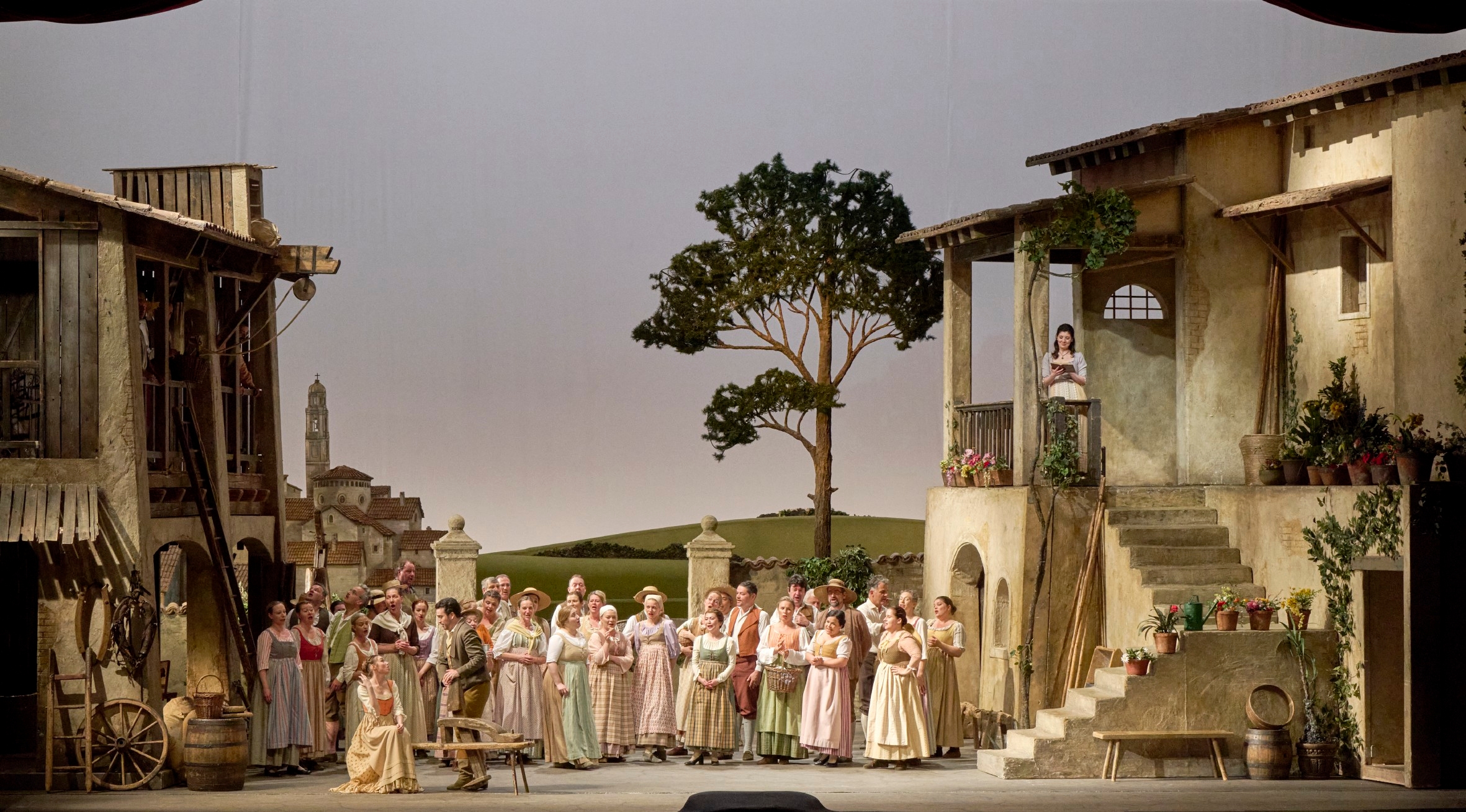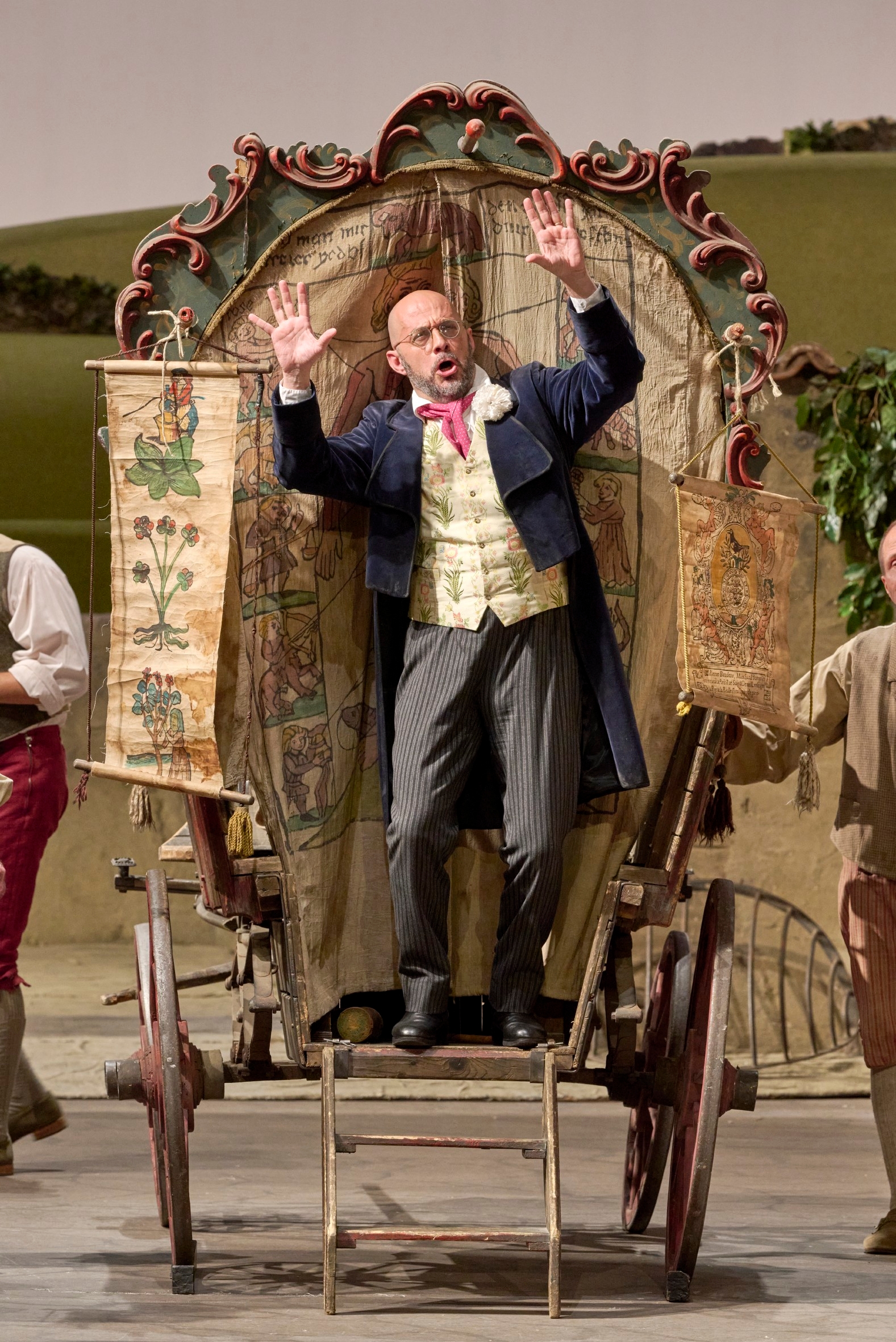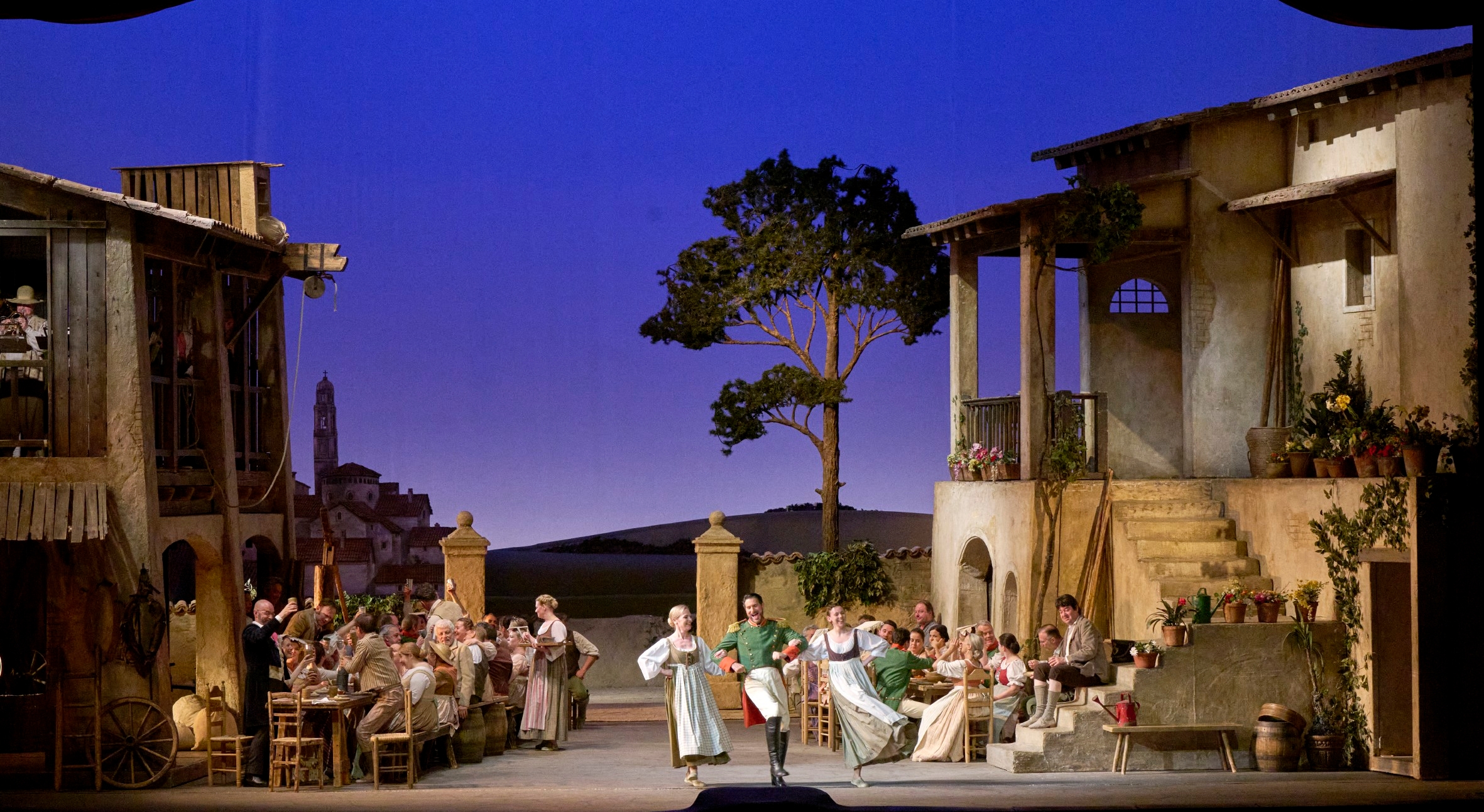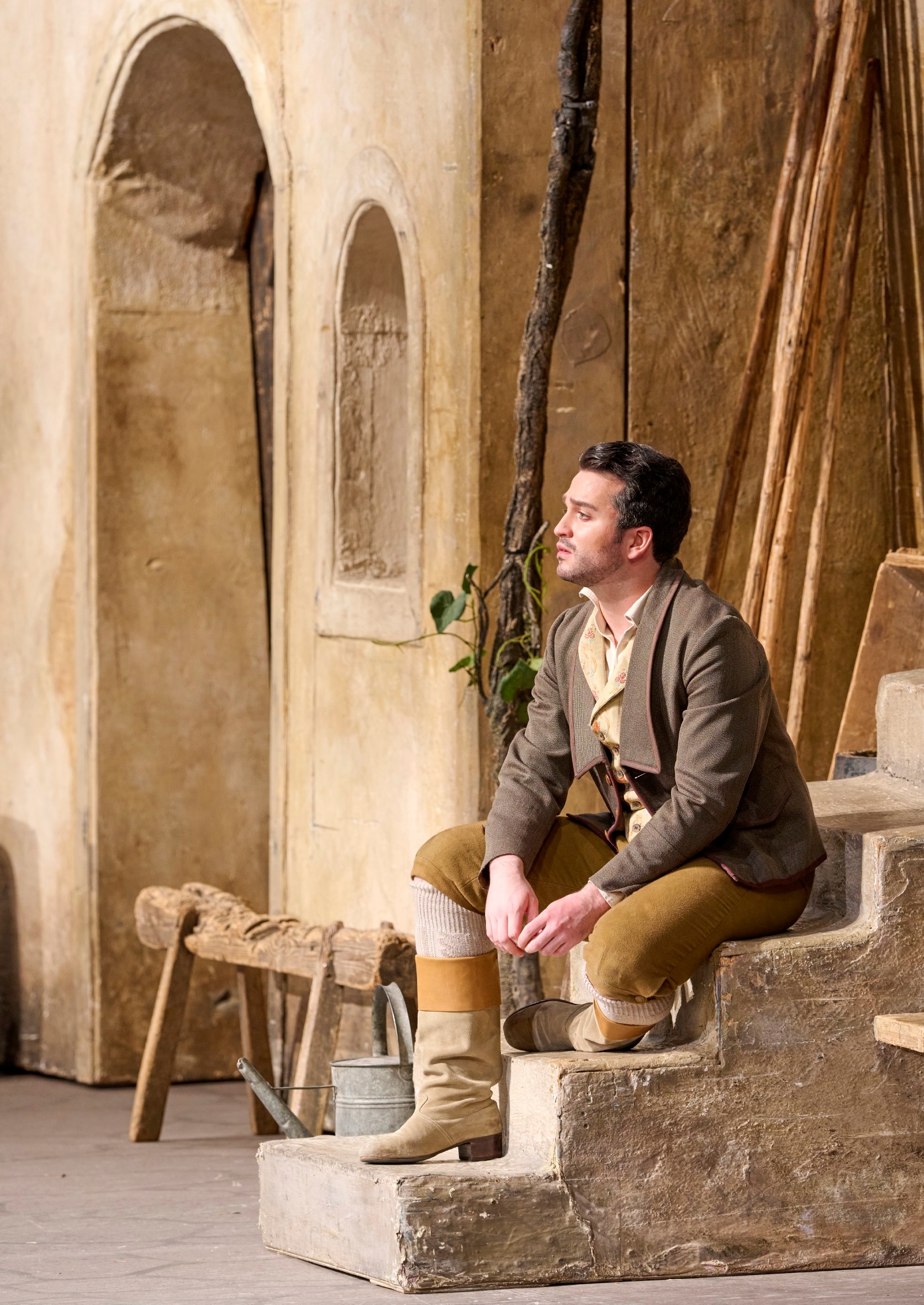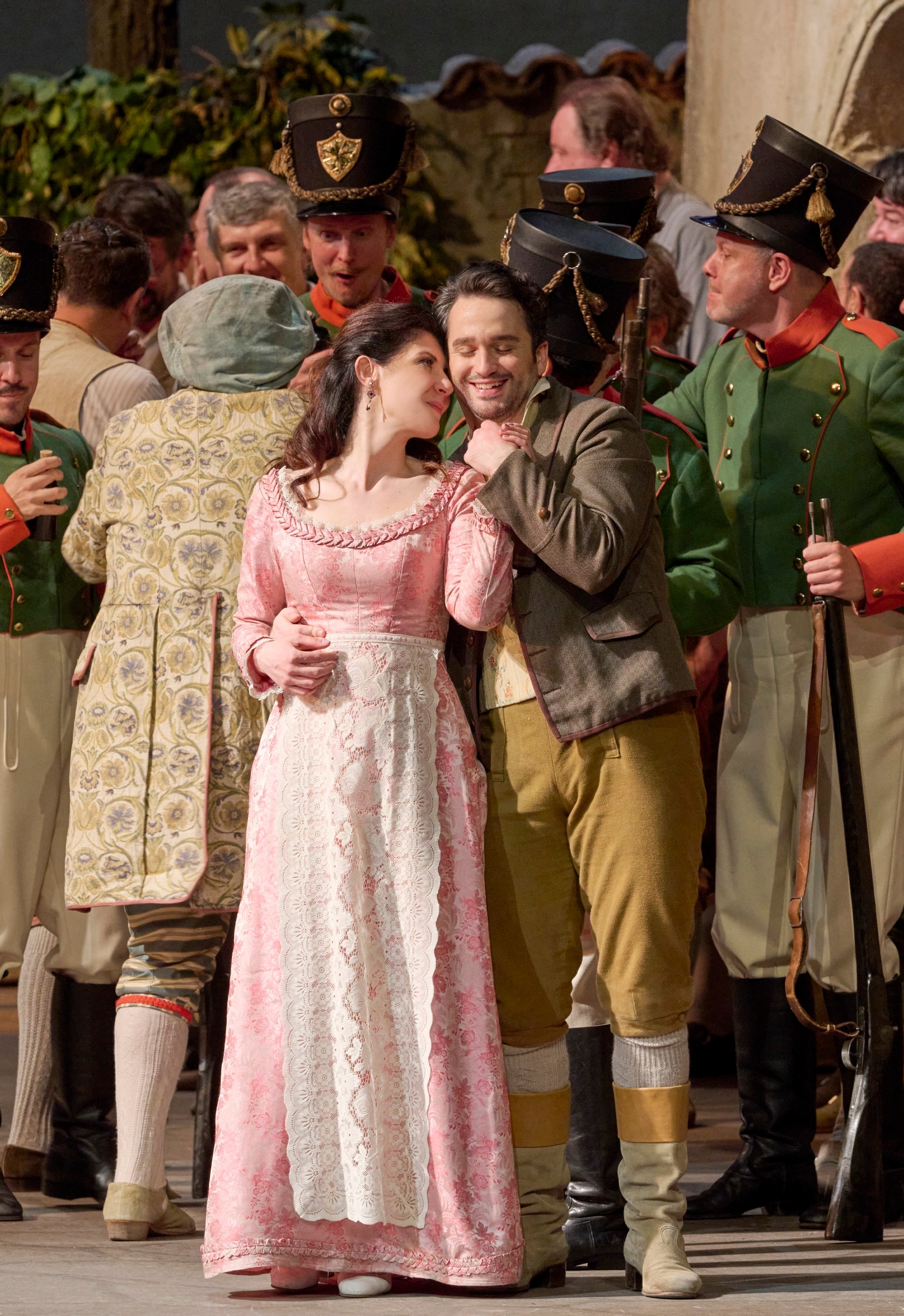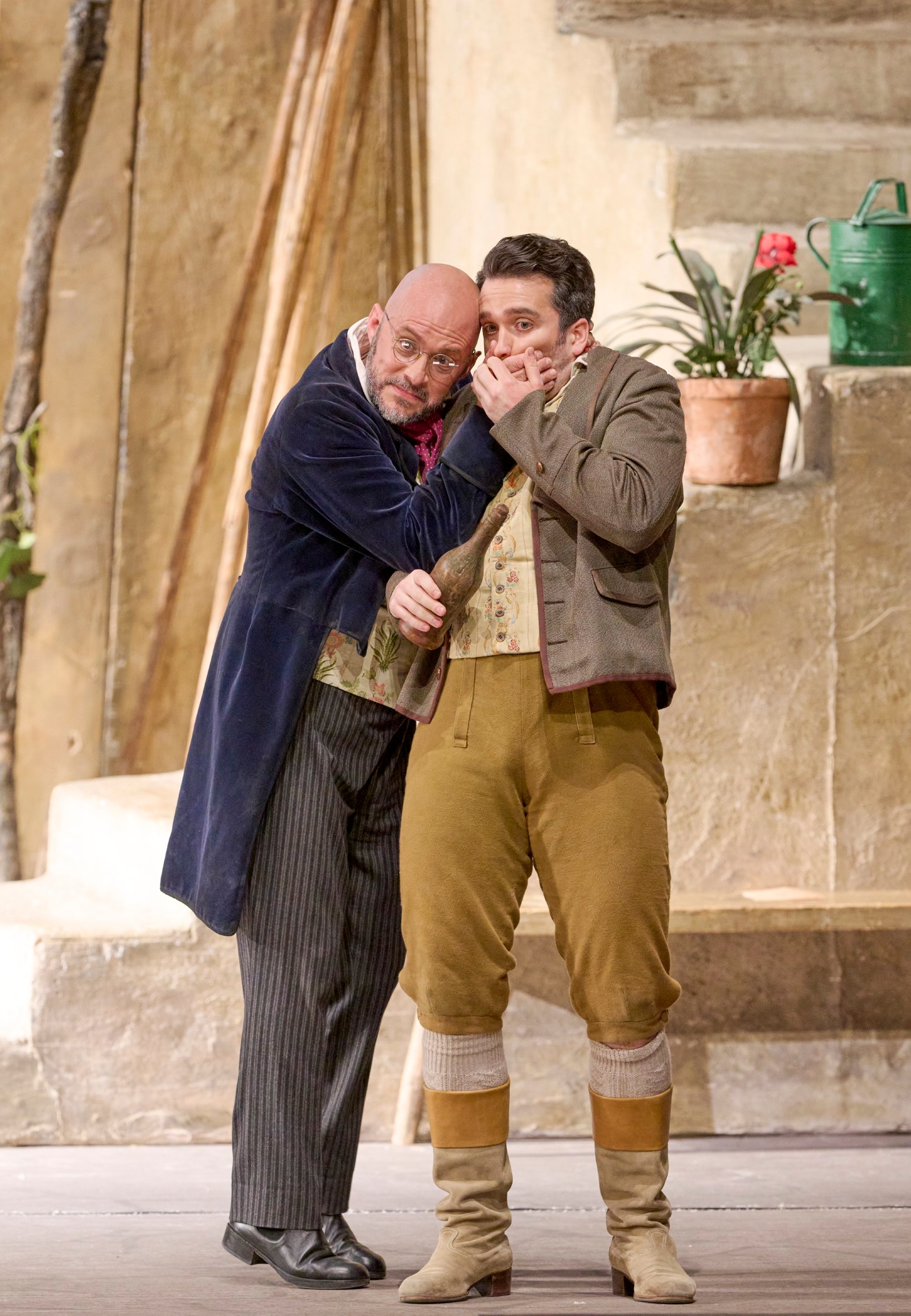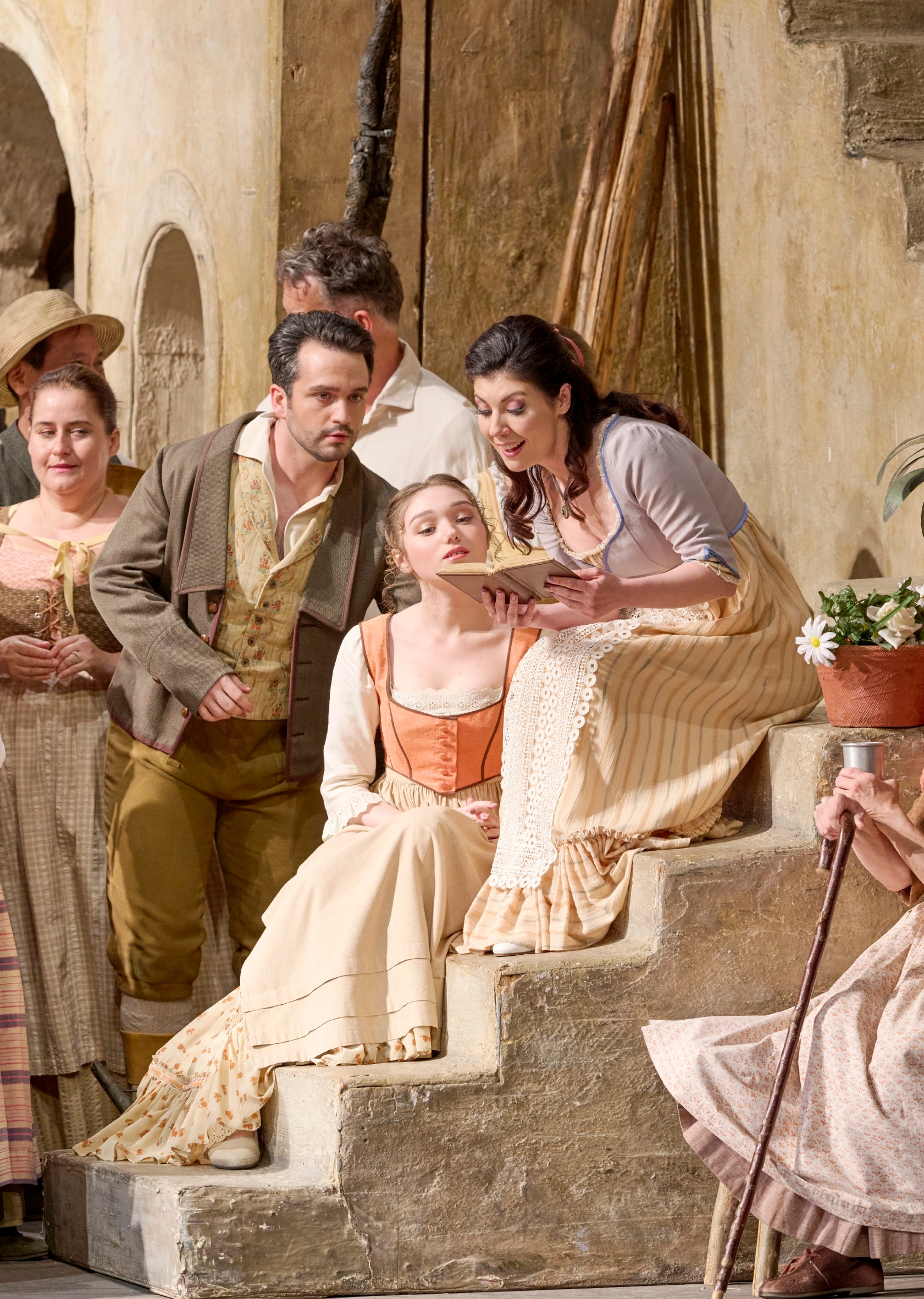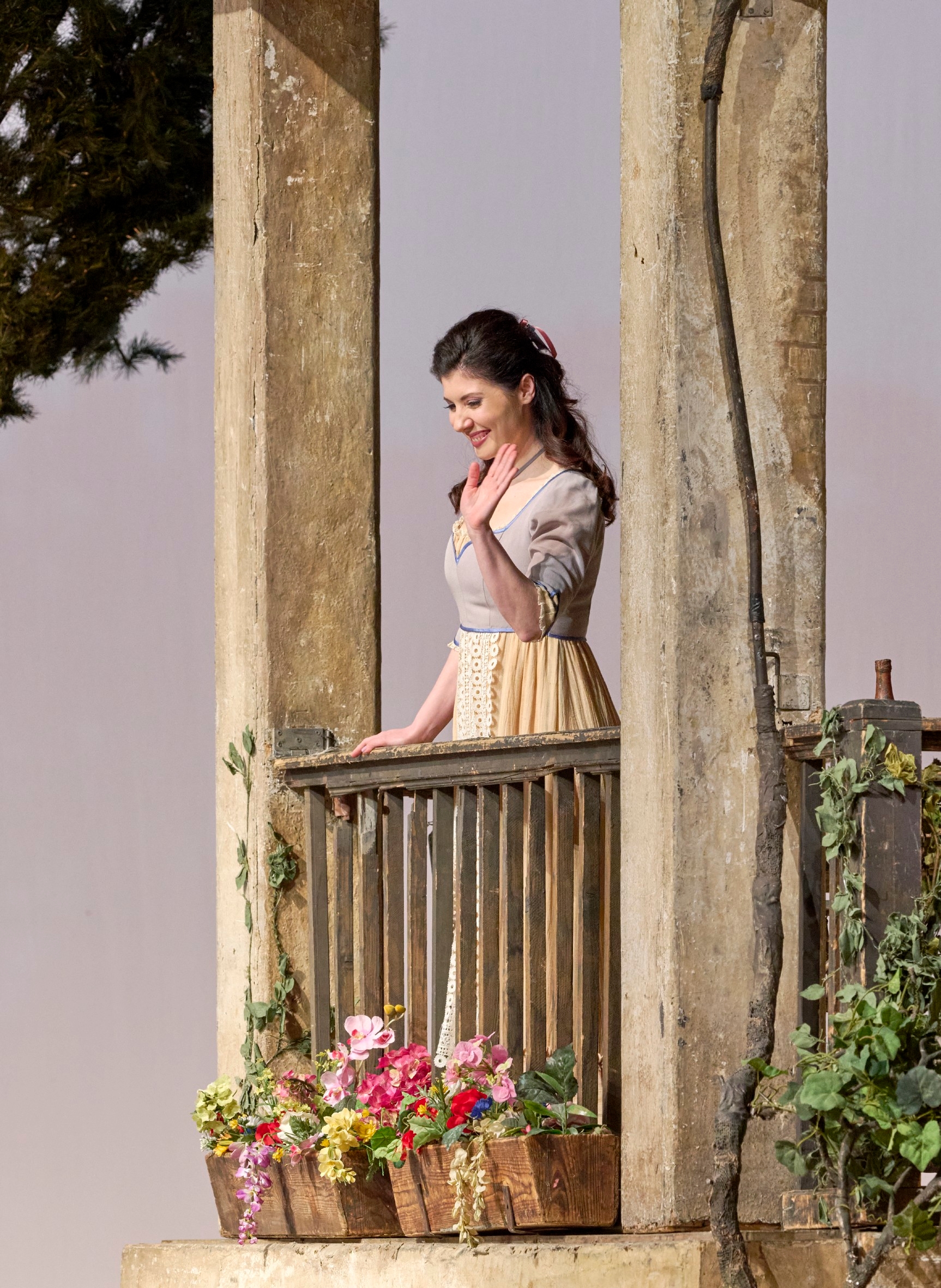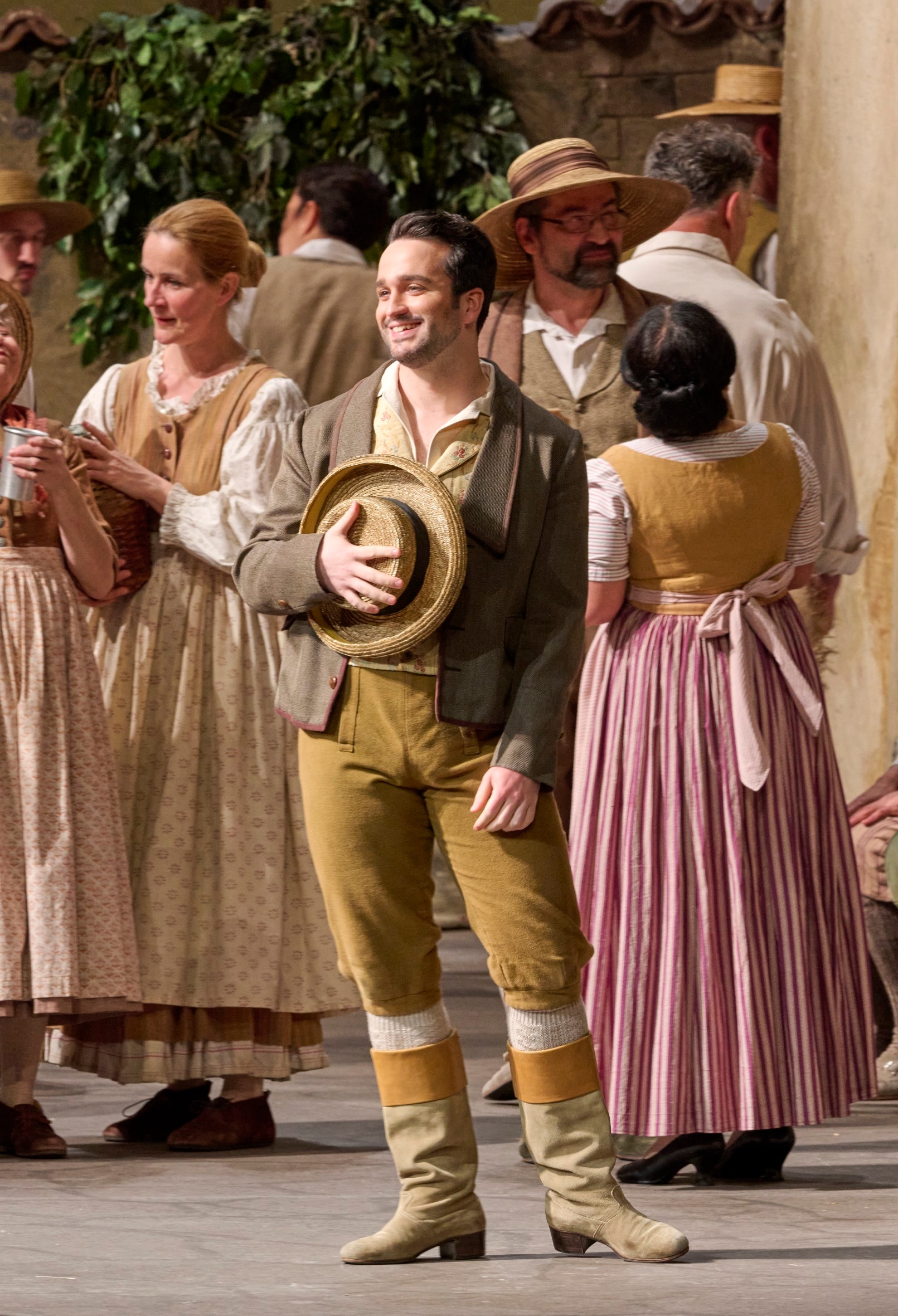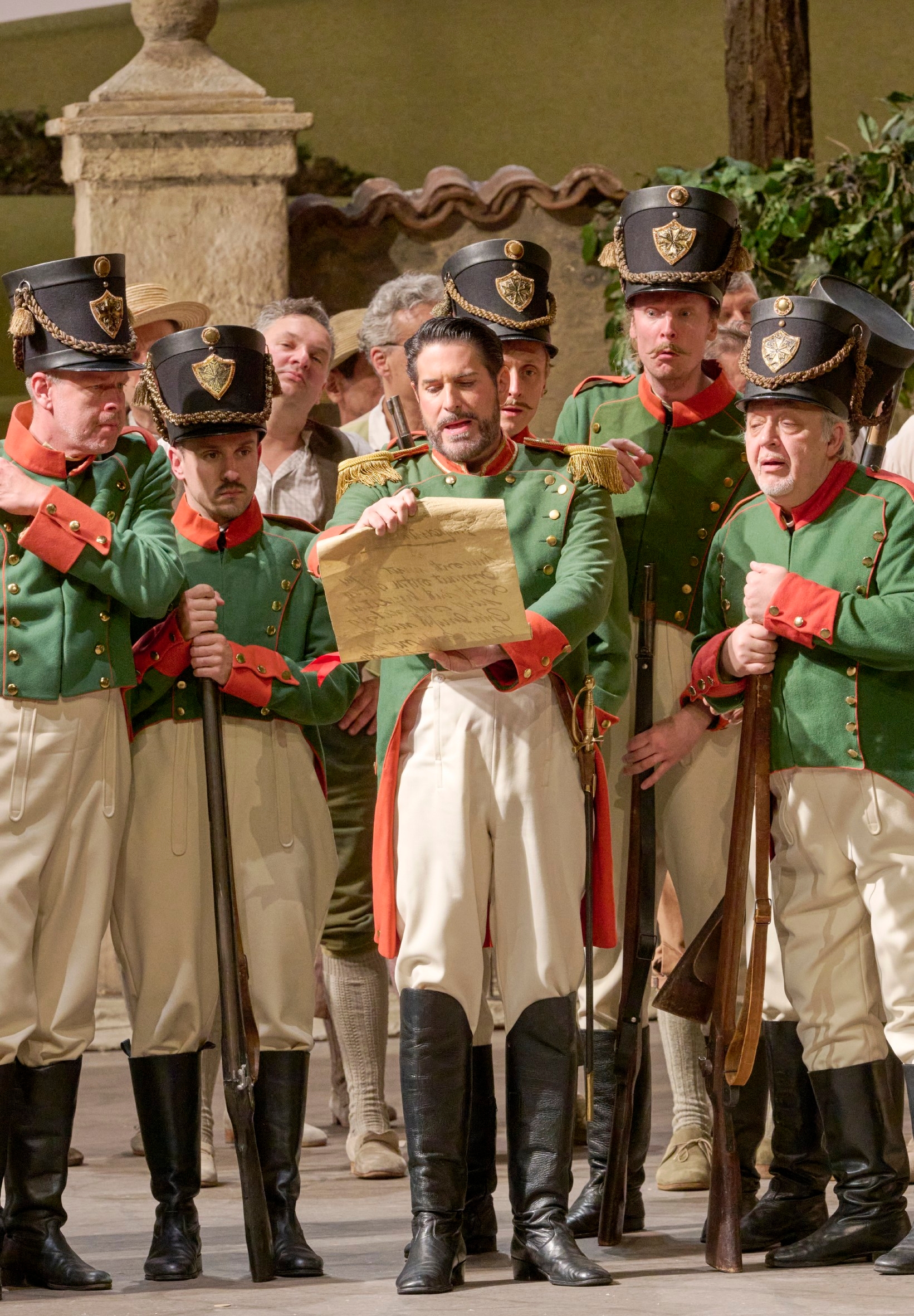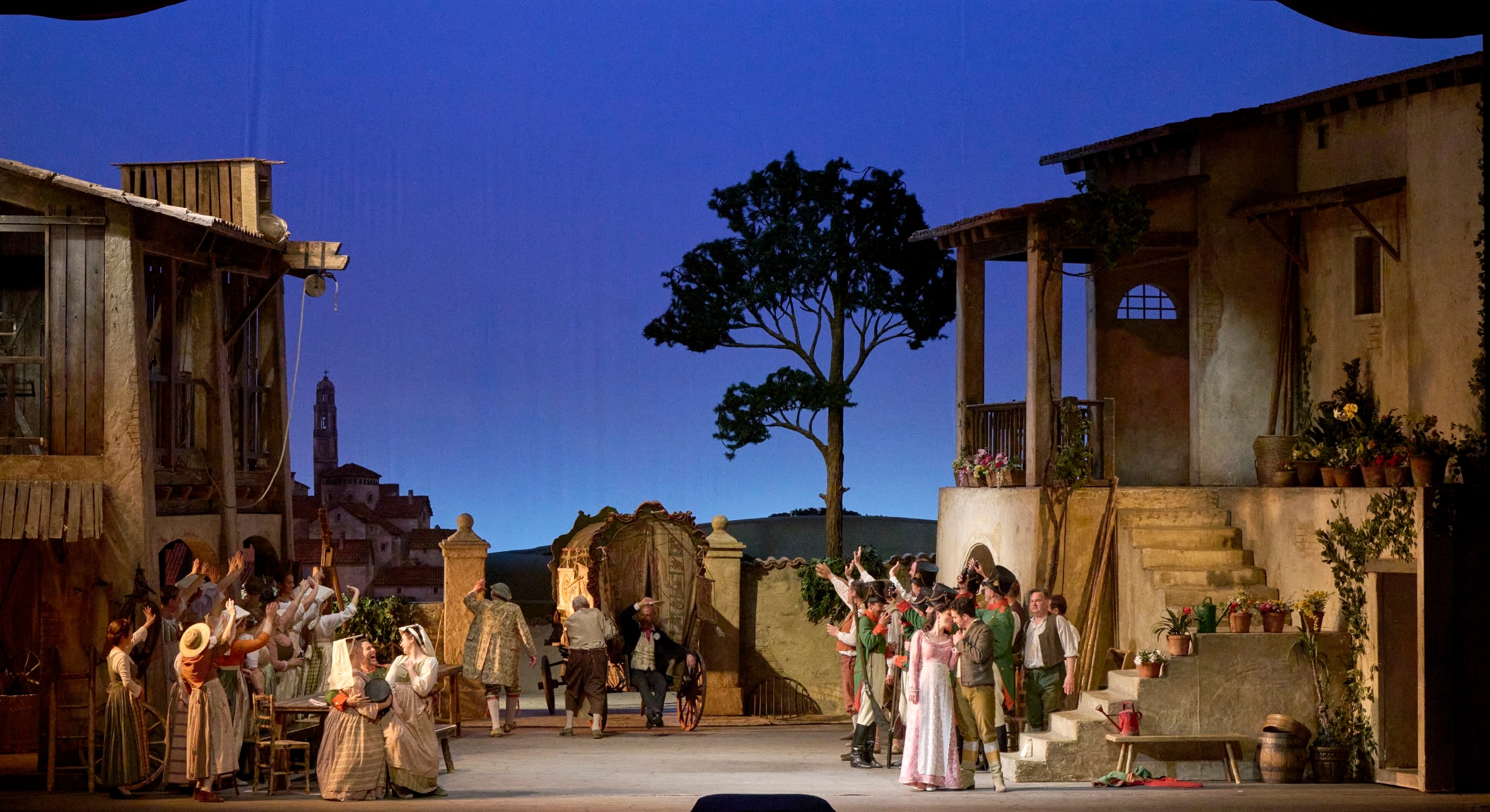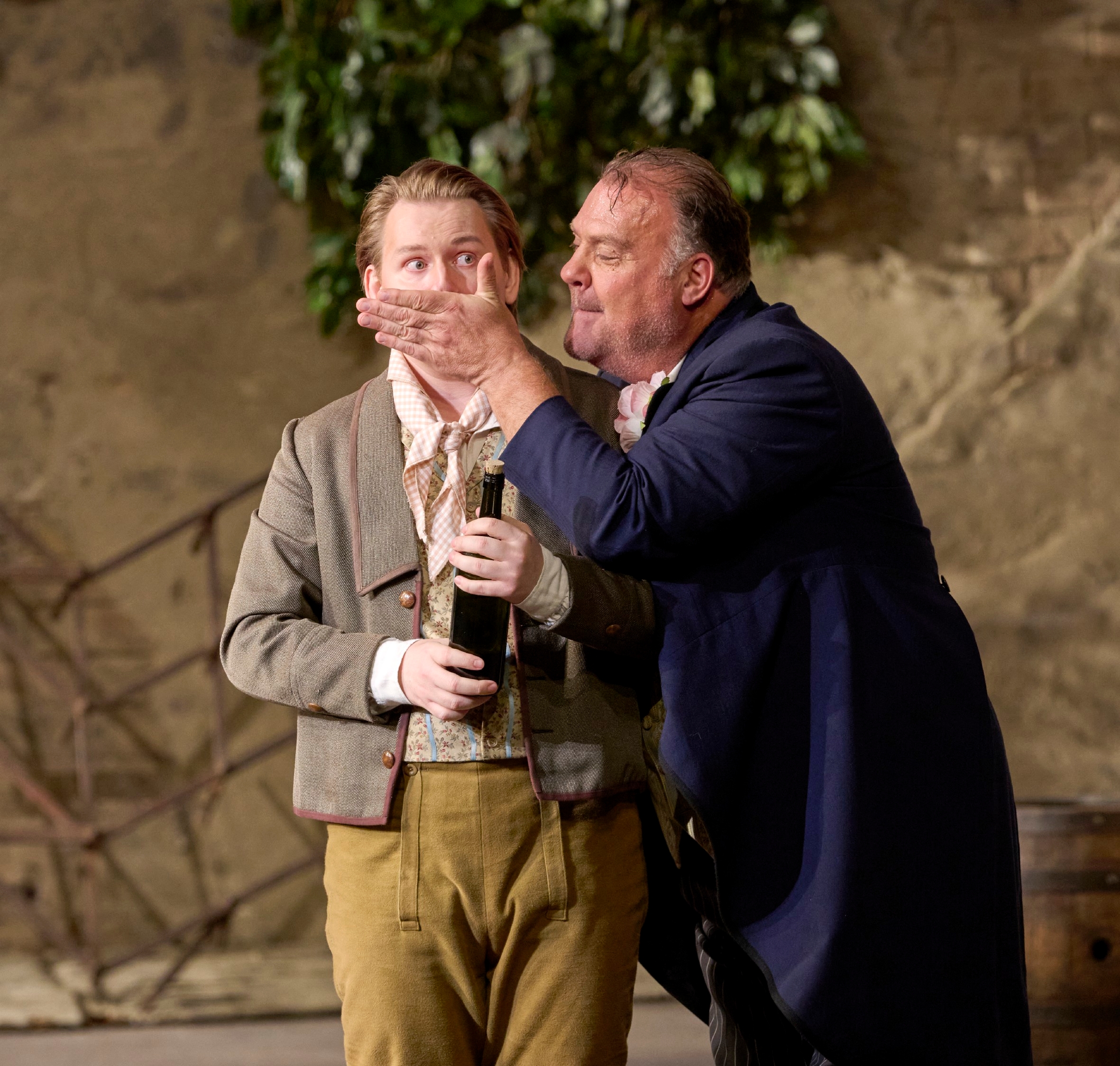
Short Summary
The penniless and insecure Nemorino loves the rich and well-read Adina.
To win her over, he buys a love potion from the quack doctor Dulcamara - in reality a bottle of wine. But of course it is not the wine that ensures a happy ending, but his loving heart - and Adina's.
Storyline

The young tenant farmer Adina, young, rich and well-read, is idolized by the penniless and insecure Nemorino.
During a break in her work, she recites the story of Tristan and Isolde and the wonderful love potion to the villagers, not without irony. Sergeant Belcore moves in and takes up quarters with his soldiers. He immediately courts Adina and confidently demands her love. But she evades him and asks for patience.
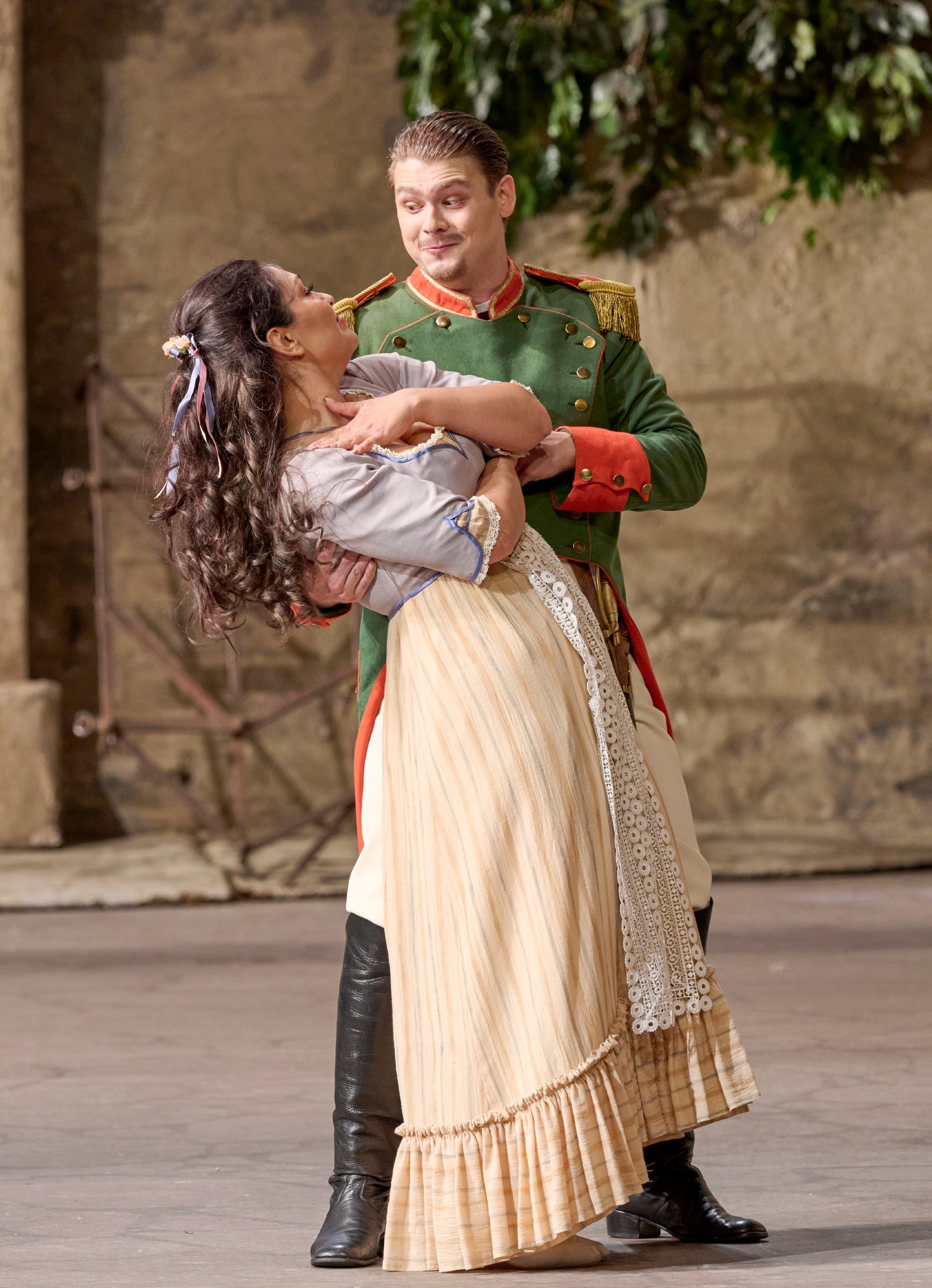
When Nemorino courts her, she rejects him: love is just a game for her and she wants to remain unattached from now on. The quack doctor Dulcamara arrives and praises his skills to the people. Nemorino takes heart and asks the miracle doctor for the famous love potion. Dulcamara sees through the situation and sells the coveted elixir - in reality a bottle of wine - to the grateful Nemorino for all his cash. Not without pointing out to Nemorino that the supposed potion only works after 24 hours (i.e. after Dulcamara has already left the village).
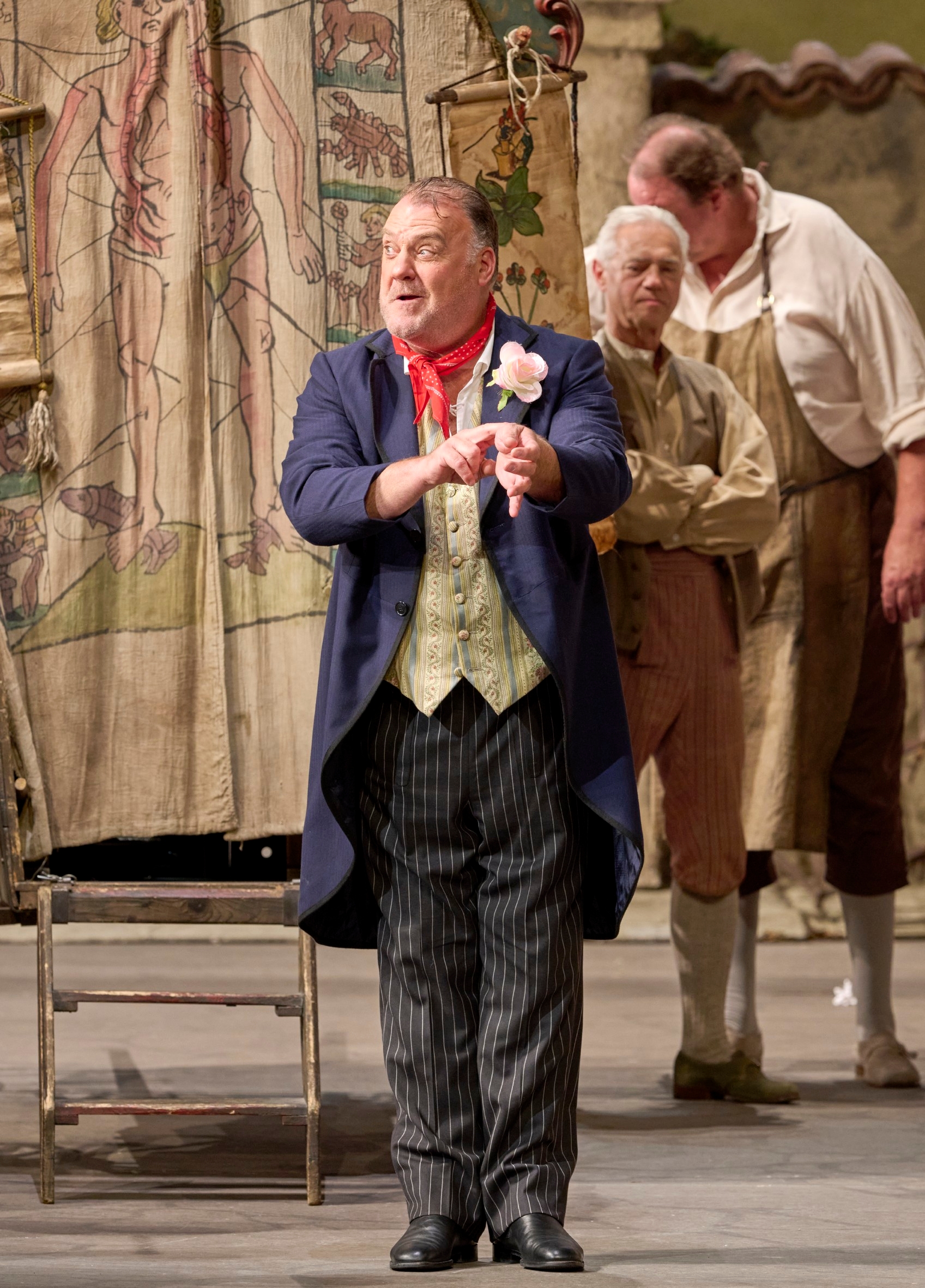
Nemorino immediately tastes the drug - and his mood improves. He becomes more confident with Adina and pretends that he is no longer interested in her. Now she can woo him. This sudden change of heart is not to Adina's liking either. She wants to find out whether Nemorino's feelings have really grown cold and declares without further ado that she wants to marry Belcore on the spot. Nemorino is completely flabbergasted. This is not how he imagined the love potion would work.
The wedding is being prepared, but Adina delays the conclusion of the marriage contract.
In desperation, Nemorino asks Dulcamara for a second bottle of the miracle elixir. As he has no more money, Belcore recruits him as a soldier and procures another bottle for the hand money he receives. The supposed love potion works unexpectedly quickly:
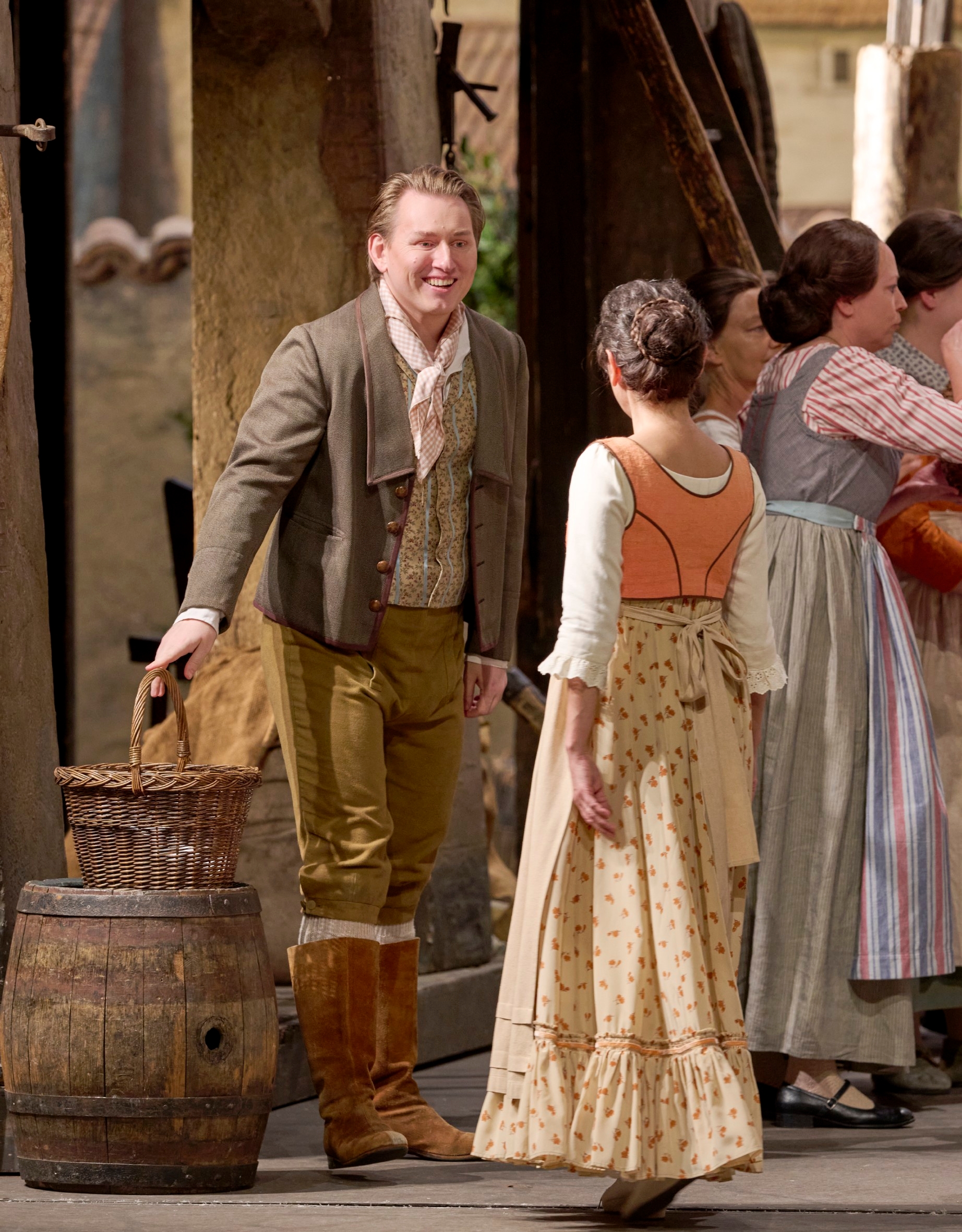
Nemorino is flattered by a whole host of girls. However, he does not suspect the true background to their affection: Giannetta has spread the hitherto secret news that Nemorino's wealthy uncle has died and named him as his sole heir. Nemorino finds the girls' company extremely pleasant and pretends to ignore Adina, which arouses her jealousy. She finally finds out from Dulcamara why Nemorino has allowed himself to be recruited.

When the quack offers her the love potion, she refuses: she knows a more effective way to win over Nemorino, to whom she is devoted after all: her eyes. She pays Belcore back the hand money, uses it to buy Nemorino's freedom and confesses her love for him. Her happiness in love is accompanied by financial happiness: Nemorino and Adina find out about the inheritance. Finally, Dulcamara takes advantage of the situation: he boasts about his art, thanks to which Nemorino has achieved both his happiness in love and his fortune.
»When you talk about Otto Schenk's work, the key message is probably that he was always concerned with people. With compassion, with a loving but also critical eye. But above all, for all his education, knowledge and intellectuality, he was completely open-minded. He preferred to work with a sensuality of life and the characters that ultimately defined his theater.« (Diana Kienast, former head stage manager of the Vienna State Opera and long-time collaborator of Otto Schenk)
Donizetti celebrated one of his greatest and most lasting successes with L'Elisir d'Amore - even if the circumstances of its creation had led him to expect anything but a triumph: in mid-April 1832, the management of Milan's Teatro della Canobbiana had desperately turned to Donizetti, who was known to work quickly, with a request for an opera because another composer had backed out at short notice. In fact, Donizetti and librettist Felice Romani created a new two-act opera, L'Elisir d'Amore, within a very short space of time - the literature always mentions "within two weeks". And unlike many other popular operas in music history today, the work had no initial difficulties with audiences: from its premiere on May 12, 1832, L'Elisir d 'Amore was a hit with audiences and was soon performed in countless opera houses in Italy and abroad.
